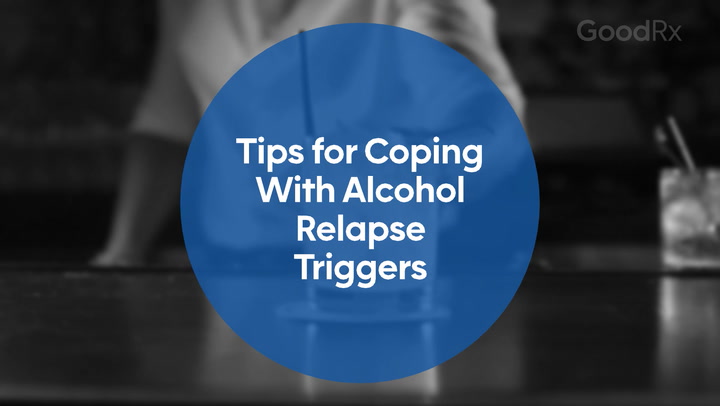
How Do Feelings of Guilt and Shame Feed Addiction?
Key takeaways:
Although shame and guilt overlap greatly, they are different feelings with unique impacts.
Shame and guilt can influence a person’s decision to start using or restart using substances.
Shame and guilt are related to other mental health conditions like depression.
By reducing shame and guilt, a person can lessen their risk of relapse.

Excessive guilt and shame are powerfully negative forces. These terms are sometimes used interchangeably. But they have very different meanings and influences on your health and well-being. Each feeling directly contributes to addiction and other mental health issues. By noticing these feelings and taking action to reduce their unwanted contributions, people can reduce the risks associated with shame and guilt.
What’s the difference between guilt and shame?
Shame and guilt are usually unwanted and uncomfortable emotions that involve feeling disappointed, let down, or self-conscious. Their sources and their impact on you can be different.
Guilt is a painful feeling caused by something a person did. If a person lied to a loved one or forgot their birthday, guilt would be a typical response. Alternatively, shame is an unwanted sensation caused when people view themselves as flawed, dysfunctional, or dishonorable.
While guilt is confined to a single action, thought, or event, shame spreads out to cover the very foundation of who the person is. Rather than being a good person who made a mistake, people with shame believe they are a bad person who is incapable of doing good.
Why is distinguishing between shame and guilt important for addiction recovery?
Accurately distinguishing guilt from shame helps you better identify the emotion you are dealing with and what actions are needed to address the issue. This process is so valuable because shame and guilt can present similarly while producing very different consequences.
Acknowledging the presence of guilt or shame also allows you to have a complete understanding of yourself, who you are, and why you react as you do in specific situations. With this information, you can prevent possible complications in the future, and you and your treatment team can use more effective coping strategies to prevent and reduce addiction today.
How can shame and guilt affect my health?
As potent feelings, shame and guilt can have a damaging effect on your health. Since these feelings are so uncomfortable, people often seek out coping skills to lessen their influence and minimize the emotional impact. Many people will choose unhealthy coping skills as a way to shift their feelings, since they seem easier and more effective, but are actually more damaging in the long-term.
These negative coping skills could include:
Anger outbursts
Overspending money
Increasing the frequency or intensity of substance use
Engaging in intense and unhealthy relationships
If these behaviors continue over time, they can harm a person’s mental, physical, and social health.
Shame and guilt have developed negative reputations. But, like other feelings, they are not always bad. At moderate levels, shame and guilt can be useful. They can offer you information to use for self-evaluation. Also, they can help guide you in interactions with others.
Do shame and guilt fuel addiction and hinder recovery?
Research shows that shame and guilt do fuel addiction. Shame, in particular, seems related to increased substance use. It’s also linked to other addictive behaviors like binge-eating, sexual risk-taking, and gambling.
People with high levels of shame may take alcohol and other drugs as a way to escape reality, artificially connect with others, and avoid their uncomfortable feelings. These behaviors only create more shame, beginning a harmful cycle of substance use.
Shame and guilt not only fuel addiction, but they can also hinder recovery. Studies show that higher rates of shame and guilt are linked to poor recovery outcomes. These unwanted feelings could shorten periods of abstinence, increase rates of relapse, or even keep people from seeking treatment. Additionally, shame and guilt could trigger co-occurring mental conditions, making substance use treatment more complicated and problematic.
Are other mental health conditions associated with shame and guilt?
High levels of shame and guilt interact with other mental health conditions in a two-way relationship. For example, high levels of shame and guilt may result in mental health conditions. And having a mental health condition could result in shame and guilt.
Some of the psychological conditions linked with shame, guilt, or both include:
Depressive disorders
Anxiety disorders
Substance use disorders
Obsessive-compulsive disorders
Eating disorders
Personality disorders
Where do feelings of shame come from?
Guilt usually arrives after you think you’ve made a mistake or have a sense of regret. The tendency to experience shame commonly develops during childhood and is influenced by a child’s environment and experiences.
Risk factors for shame include:
Traumatic events, like sexual abuse
Insecure attachment to friends or family
Enduring harsh parenting
Parental substance use
Exposure to negative stigma of mental health issues
How can I overcome shame and guilt?
If you’re hoping to reduce shame and guilt to treat or prevent a substance use disorder, you should actively try to:
Understand your feelings
Address the sources
Shift your attitudes and actions toward combating shame and guilt
Some of the most effective ways to limit the impact of shame and guilt are listed below.
Separate shame from guilt
Guilt is a problem, but the lasting influence of shame can be more damaging to a person’s life. Taking time to differentiate guilt from shame allows you to first address the most impactful beliefs. This will allow you to reduce their harms.
Challenge thinking patterns
Just because you think something does not make it true. Many feelings of shame result from faulty belief systems about yourself and the world, so work to push back against them with facts, rather than feelings.
Creating pride
Some people spend too much time trying to avoid shame and guilt instead of seeking out pride. Devote time and energy each day toward doing something that generates pride. Volunteering your time, assisting a neighbor, and donating to charity are all simple options to produce new pride.
Practicing self-acceptance
Shame and guilt are no match for self-acceptance and self-forgiveness. Admit that, as a human, you are allowed to make mistakes and have regrets. Promise to learn from your mistakes and try to avoid repeating your regretful behaviors. At the same time, focus on the lessons learned from these experiences. Forgiveness is never easy, but without it, addiction may continue.
Seeking out professional treatment
In many situations, shame and guilt can be resolved with a few small adjustments. Other times, though, you may need to speak to a mental health professional. Especially for people with substance use and other mental health disorders, counseling and medication services could produce results a person cannot achieve alone.
How to talk about feelings of guilt and shame
Addressing feelings of shame and guilt with loved ones is a valuable coping skill. Start the conversation by focusing on the basics of your experience. Like with any other conversation, it’s best to communicate honestly and openly in a safe, distraction-free environment. Your true supporters will respond with love and empathy to your concerns.
How to get help
Mental health professionals are experts in confronting excessive shame and guilt. They can evaluate each situation and note how these feelings creep into other parts of your life and contribute to substance use and mental health disorders.
Often, getting help is as simple as phoning the nearest mental health agency, speaking to your primary care physician, or asking a friend for a referral. A simple web search or call to your insurance company can connect you to services as well.
The bottom line
At high levels, guilt and, especially, shame are problematic feelings. They both contribute to and continue substance use disorders. Fortunately, with a focused effort and help from loved ones and professionals, shame and guilt can shift to confidence and pride.
If you or someone you know struggles with substance use, help is available. Call SAMHSA’s National Helpline at 1-800-662-HELP (4357) to learn about resources in your area.
Why trust our experts?

























